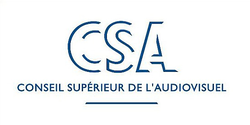July 23, 2016
Breaking news

On 20 July 2016, the Conseil Supérieur de l'Audiovisuel (CSA- French "Independant Authority to Protect Audiovisual Communications Freedom") issued a press release in which it directly addresses to its Turkish counterpart.
Read the 20 July 2016 press release from the CSA.
The press release is short. Here is what it says: "Le Conseil supérieur de l'audiovisuel exprime sa vive inquiétude à la suite de la décision du Conseil suprême de la radio et de la télévision (RTÜK), le régulateur des médias en Turquie, de retirer leurs droits d'émission à de nombreuses radios et télévisions. Le Conseil appelle son partenaire de longue date au sein de la Plateforme européenne des instances de régulation (EPRA) et du Réseau des institutions de régulation méditerranéennes (RIRM) à ne pas mettre en cause la liberté de communication et le pluralisme des médias, garanties fondamentales d'une société démocratique." (courtesy translation: "The Conseil supérieur de l'audiovisual expresses its deep concerns following the decision of the Supreme Council for Radio and Television (RTÜK), the Turkish Media Regulator, to withdraw the broadcasting rights of numerous radios and televisions. The Conseil calls upon its long-time partner within the European Platform of Regulatory Authorities (EPRA) and the Mediterranean Regulation Authorities Network (RIRM) not to jeopardize the freedom of communication and media pluralism, which are fundamental guarantees in a democratic society").
The press release is entitled "Le CSA s'inquiète du retrait par le régulateur turc des droits d'émission de radios et de télévision" (courtesy translation: "The CSA worries about the decision of the Turkish Regulator to withdraw broadcasting rights to radios and televisions").
____
Isn't this surprising?
One would understand that the members of a Regulatory Authority, just as many people, would worry about what has been happening lately in Turkey. One can also share the view that these events might cause them to fear for the sake of public liberties and democracy in the country.
Should a Regulatory Authority express its "worry" though?
Shouldn't it be the Government's role instead, within the framework of its 'diplomatic relations' with the state and with the use of an appropriate vocabulary, to express any 'worry'?
First of all, this is a salient example of the ambiguity of the Audiovisual Regulator. Indeed, while it itself insists on the fact that it acts as an economic regulator of a sector whose development and innovation falls under its watch and monitoring (which namely justifies the fact that he reviews candidacies to the presidency of public televisions channels), the Conseil Supérieur de l'Audiovisuel had initially been created to preserve public liberties.
As such, people who still embrace the distinction that was previously assumed between public liberties regulation and economic regulation still consider the CSA - along with the CNIL - as the prototype of the former type of regulatory body.
Here the CSA expresses its "deep concern" and sends a request not to "jeopardize liberties", which is the polite version of an injunction, to a foreign regulatory authority upon which it has no authority whatsoever.
One can understand that the Regulator develops soft law about operators on which he has actual authority. But what about here? Shouldn't the adage Nemo plus juris apply?
How is the Regulator competent to issue 'releases' in which he formulates desiderata towards a foreign body whose behavior is unappealing to him? Shouldn't the Quai d'Orsay (French Ministry for Foreign Affairs) be in charge?
The Regulator took a political stance here, while it is known that a Regulatory Authority can only be legitimate when it stands as a technical authority; emphasizing on the political features of its job actually jeopardizes this legitimacy, all the more when international politics are involved (which is the case here).
However, the Regulator does preempt criticism in its press release:
It starts indeed by stating that it only expresses this sort of 'feeling' because of the old ties that exists between the French and the Turkish Regulators: it essentially considers that friends can be true to one another, express a few criticism and expect changes. Friendship in the digital media and in politics would allow for many things.
Besides, the CSA recalls the solidarity that prevails between the two regulators. Because they are "long-time partner within the European Platform of Regulatory Authorities (EPRA) and the Mediterranean Regulation Authorities Network (RIRM)", the French Regulator is enabled to express the Turkish Regulators its view on how it is jeopardizing democracy and how it should consequently stop.
Maybe the many ties that exists between the Regulators now enable them to give more or less stringent advice to one another, whereas diplomatic embassies now play an increasing economic role: how blur do the lines get!
Updated: Aug. 31, 2011 (Initial publication: June 9, 2011)
Contributions

Updated: June 16, 2011 (Initial publication: May 27, 2011)
Releases : I. Isolated Articles
ENGLISH
Competition is the principle element of markets, in the princely sense of the term.The relationships that regulation maintains with competition are ambiguous. It is important to eliminate this ambiguity in order to reveal the ab initio opposition between regulation and competition, to shed light upon the dialectics between both of them. Indeed, regulation may aim at building competition, and is thereby presented as a tool that will cease being used when the competitive market functions effectively.
Administration - Autorité de Régulation des Communications électroniques et des Postes - Competition - Competition Authority - Conflict of intersts - Consumer - Contract - Equilibrium - European Commission - Ex ante / Ex post - Government - Hayek - Horyzontal regulation - Information asymmetry - Liberalisation - Market failure - Natural economic monopoly - Online gambling - Political mandate - Postal services - Power - Principle - Real economy - "Réglementation" - Regulator - Regulatory Authority - Self regulation - symmetrical regulation - Telecommunication - Tool - Watchdog *
* In The Journal of Regulation, these keywords are done by the Editor and not by the Author.
PORTUGUESE
Artigo: Regulação versus Concorrência
Concorrência é o principal elemento dos mercados, no mais genuíno sentido da palavra. As relações que regulação mantém com a concorrência são ambíguas. É importante eliminar essa ambiguidade de modo a relativizar a oposição ab initio entre regulação e concorrência, para trazer luz para a dialética entre elas. Com efeito, regulação pode tender a construir a concorrência, e é então apresentada como uma ferramenta que deixará de ser usada quando o mercado competitivo passar a funcionar realmente.
Administração – Autorité de Régulation des Communications électroniques et des Postes – Concorrência – Autoridade de concorrência – Conflito de interesse – Consumidor – Contrato – Equilíbrio – Comissão Europeia – Ex ante / Ex post – Governo – Hayek – Regulação horizontal – Informação assimétrica – Liberalização – Falha de mercado – Monopólio econômico natural – Jogo em linha – Mandato político – Serviços postais – Poder – Princípio – Economia real – Regulamentação – Regulador – Autoridade de regulação – Auto-regulação – Regulação simétrica – Telecomunicações – Ferramenta – Observador*
* No Journal of Regulation, as palavras-chave são fornecidas pelo Diretor, e não pelo Autor.
ITALIAN
Articolo: Regolazione vs. Concorrenza
La concorrenza è il principio fondamentale dei mercati, nel senso stretto del termine. Le relazioni tra regolazione e concorrenza sono ambigue. Per rivelare il contrasto tra regolazione e concorrenza è importante cancellare questa ambiguità e chiarire la dinamica di questi due concetti. In effetti, la regolazione punta a sviluppare la concorrenza ed è spesso considerata uno strumento che non avrà più ragion d’essere una volta che il mercato funzionerà in libera concorrenza.
Amministrazione - Asimmetria dell’informazione - Autoregolazione - Autorità di regolazione - Autorité de Régulation des Communications électroniques et des Postes - Autorità garante della concorrenza - Commissione Europea - Concorrenza - Conflitto di interessi - Contratto - Consumatore - Economia reale - Equilibrio - Ex ante / Ex post - Governo - Hayek - Liberalizzazione - Mancato Funzionamento del mercato - Monopolio economico naturale - Mandato politico - Potere - Principio - "Regolamentazione" - Regolatore - Regolazione orizzontale - Regolazione simmetrica - Servizi postali - Scommesse online - Strumento - Telecomunicazioni - Vigilanza *
* In The Journal of Regulation, le parole chiave sono responsabilità dell’Editore e non dall’Autore.
SPANISH
Artículo: Regulación versus la competencia
La competencia es el elemento principal de los mercados, en precisamente el sentido de este término. Es importante eliminar esta ambigüedad para poder revelar la posición ab initio entre la regulación y la competencia, para poder traer a luz las dialécticas entre las dos. Así tanto, la regulación puede intentar construir la competencia, y es, por consiguiente, un instrumento que cesará de ser utilizado cuando el mercado competitivo funcione de manera eficaz.
Other translations forthcoming.
